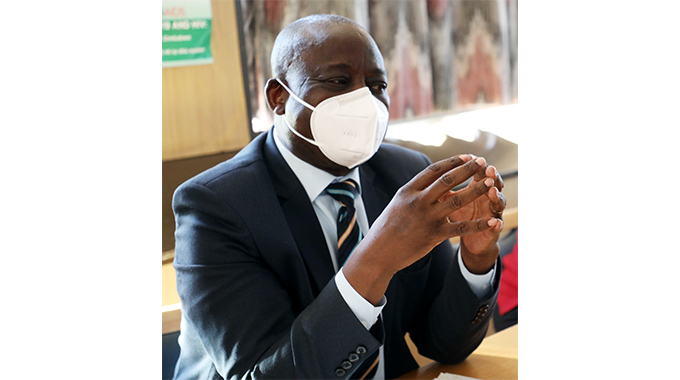COMMENT: Support Bulawayo door-to-door Covid-19 jabs
COVID-19 is a lethal, fast-progressing and highly transmissible disease that brought the globe to a halt, especially in the first months of its outbreak in 2020.
The virus that causes it can infect tens of thousands within hours and can kill within a day or two of infection. Some who have survived it say it is wrenchingly painful — the fatigue, the deep cough coming from straight the lungs, the splitting headache, the body feeling hot yet cold, the breathlessness and the emotional trauma.
Millions have been infected worldwide resulting in 5,6 million deaths. In our country, 228 179 cases had been recorded by Saturday since March 2020, according to the Ministry of Health and Child Care. Of the local infections, 5 292 have been fatal.
As all viruses do, the coronavirus mutates rapidly and attacks in waves — hitting for two or so months and retreating for a few months before returning again for two months or so and retreating. The cycle goes on and on, with each new wave more lethal than the immediate past one. We are beginning to emerge from a fourth wave but health experts say a fifth one is inevitable, probably around winter.
Given this devastating, fright-inducing impact of Covid-19, we did not expect that anyone could, at any point, want to be convinced to take measures to protect themselves against the disease. Masking up is one of the preventive measures, as are social distancing and regular handwashing with sanitiser or soapy water.
A year into the pandemic, vaccines were introduced as a surer way through which the world could be protected from the disease.
We thought people would stampede to be vaccinated against Covid-19; we feared people would riot if vaccines ran out.
However, most surprisingly, the country has a new set of challenges to persuade the masses to get vaccinated. A vigorous publicity campaign in the print, broadcasting and social media is going on. The Government has imported millions upon millions of vaccines from China but, since demand for them remains low, storage space is running short.
To drive up vaccinations, health officials in Bulawayo have taken a more drastic step, door-stepping residents with vaccines in hand, exactly in the same manner council officials do pressing residents to pay off debts to the local authority or political parties seeking to convince the electorate to vote for them. We thought Covid-19 was an obvious threat and our people would not need to be nudged to get vaccinated against it as is happening now.
“The door-to-door campaign is one of the strategies which we have come up with that will see us get closer to herd immunity,” Bulawayo Provincial Medical Director, Dr Maphios Siamuchembu told our sister paper, Sunday News yesterday.
“We have realised that people are no longer availing themselves to be vaccinated while vaccine doses are in abundance. Actually, we are even running out of storage because of the vaccines we have in the country. Our aim now is that we vaccinate most of those in the eligible population. As a city, 52 percent of our eligible population have received all their doses. Remember that for us to reach herd immunity we need at least 60 percent of the entire population to have been vaccinated.”
Dr Siamuchembu and his team have shown a huge amount of inventiveness. They probably are the only team in the country to be bringing the life-saving vaccines to people’s door-steps.
Therefore, the Bulawayo team deserves plaudits for working the way they are doing. Other provinces across the country must emulate them. They can also come up with other social marketing ideas to save our people from the sickness that Covid-19 can wrought on them; to save them from an outcome much worse than sickness.
Bulawayo residents must make themselves available when health staff knock on their doors bearing the shots of life.
If the teams don’t pass through their homes, residents can always go to their nearest health service centre to get vaccinated, for free. It is vital for them to know that Covid-19 hasn’t been defeated yet. Yes, the fourth wave is waning, but a fifth one, likely to be severer, will be upon us not too long from now. No one knows who it will sicken, or worse.










Comments